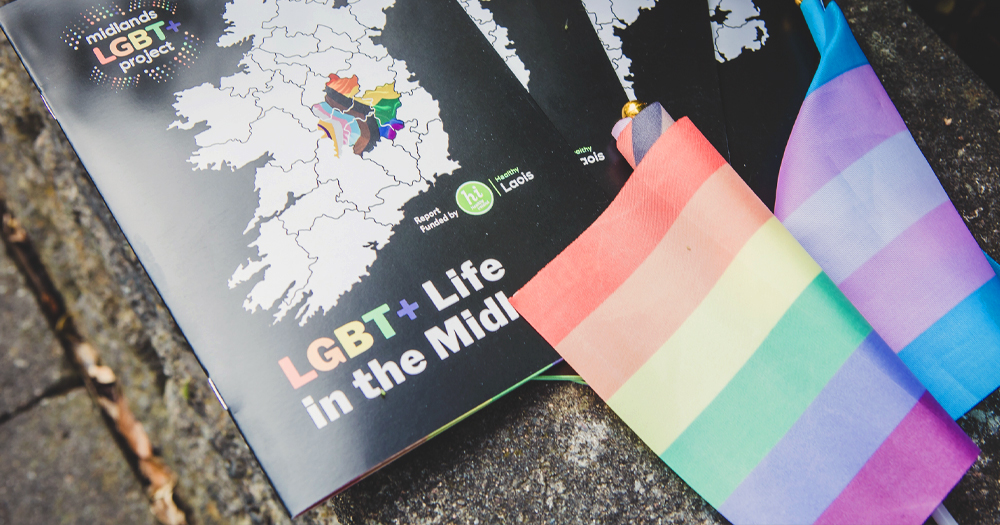According to new research published today, June 5, one in five members of the LGBTQ+ community don’t feel safe in the Midlands of Ireland.
Titled LGBT+ Life in the Midlands, the research aims to shed light on both the progress made and the ongoing challenges that queer people face in Midland counties including Laois, Offaly, Westmeath and Kildare. The study was commissioned by the Midlands LGBT+ Project and funded by Healthy Laois to provide insights into the lived experiences of the community in the region.
The research was conducted by Dr Ingrid Holmes over a six-month period in 2022, when 244 LGBTQ+ adults across the Midlands were surveyed. The survey delved into various aspects of their life in the area, including supports, life satisfaction, safety, relationships, representation, inclusivity and health.
As the findings show, an overwhelming majority of respondents (86%) consider themselves to be fairly open about their LGBTQ+ identities. However, 54% of those surveyed said they have thought about moving away from the Midlands due to their identity.
Moreover, 25% of participants are out to no one at work, while 42% ‘often’ or ‘always’ avoid holding hands with a same-sex partner in public for fear of being assaulted, threatened or harassed. As the results show, one in five LGBTQ+ people don’t feel safe in the Midlands, with trans respondents noting that they feel marginally safer in the Midlands than in Dublin, comparatively.
Visualizza questo post su Instagram
The research also explored the main challenges faced by queer people in the region. For people aged 18 to 44, one of the biggest challenges appeared to be the lack of services and safe spaces dedicated to the LGBTQ+ community, which led to feelings of isolation.
“The midlands consists of very rural and conservative towns and villages and a lot of people still talk about LGBT in hushed tones as if it’s something shameful, and they don’t even get nonbinary, they can barely get their head around bisexuality,” one respondent stated, adding that not many people are out.
People aged 45 or older highlighted that a major challenge they face is the misunderstanding and ignorance around LGBTQ+ topics or identities from people outside the community. One participant said: “More closed minded, rural communities are less understanding of diversity. Even when from time to time holding my pregnant fiancés hand, we get looks. It can be uncomfortable at times but it’s important to still be yourself.”
Commenting on the findings, Midlands LGBT+ Project manager Christina Fitzharris stated: “This research is a crucial step towards understanding the unique experiences of LGBT+ individuals in the Midlands.
“While we have made significant steps forward, our findings highlight the areas that still require attention, particularly in mental health and a sense of community.”
© 2024 GCN (Gay Community News). All rights reserved.
Support GCN
GCN is a free, vital resource for Ireland’s LGBTQ+ community since 1988.
GCN is a trading name of National LGBT Federation CLG, a registered charity - Charity Number: 20034580.
GCN relies on the generous support of the community and allies to sustain the crucial work that we do. Producing GCN is costly, and, in an industry which has been hugely impacted by rising costs, we need your support to help sustain and grow this vital resource.
Supporting GCN for as little as €1.99 per month will help us continue our work as Ireland’s free, independent LGBTQ+ media.
